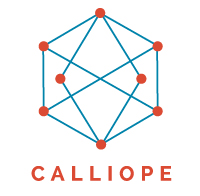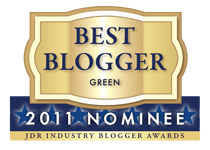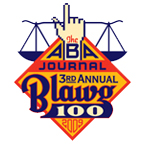Is Henry Gifford Really Rosa Parks?
NOTE: The opinions expressed in this post are entirely those of the author, and do not represent the position of the USGBC or the Delaware Valley Green Building Council.
You had to know this was coming. I even predicted a Lanham Act and Consumer Fraud Act claim would be part of a good green litigation.
Yesterday, Henry Gifford, public critic of LEED (you may have read his Op-Eds in the New York Times) filed a class action law suit against the USGBC and its founders personally on behalf of "consumers, taxpayers, building design and construction professionals." The allegations are essentially fraud and false advertising, an anti-trust claim and a RICO claim thrown in for good measure. His theory is that the USGBC has falsely claimed that its rating system makes buildings save energy, and that building owners have spent more money to have their buildings certified, that professionals have gotten worthless professional credentials and people in general have been duped into thinking LEED has meaning. The Complaint can be downloaded here.
There will be a lot written on this suit--blog posts, client alerts, articles will dissect the wrongness or the rightness of the claims. Real estate and construction lawyers, including me, lit up at the sound of the stamp of the clerk in the Southern District of New York where the case was filed.
My initial take (hey--I have to get in my fair share of the follow-on publication) is that the case may have merit, but it has a bad plaintiff. Rosa Parks was not the only person to object to segregated buses by refusing to give up their seat. She was chosen by the NAACP because she made a good plaintiff.
The plaintiffs in this case are Mr. Gifford, his company, and a resident of the state of Arizona, presumably representing the taxpayer, as nothing is stated in the Complaint about his occupation or other way he might have been harmed personally.
I don't think that, as alleged, this suit will survive class certification. In a class action suit, you must consider (among other things) whether the plaintiffs are enough alike so that their claims can be adjudicated together, whether the questions of fact and law are sufficiently similar, and whether the lead plaintiffs adquately represent members of the class.
Here, the Plaintiffs are purporting to file suit on behalf of a whole range of plaintiffs with all different harms--harms to building and design professionals who sought educational certifications, building owners who paid additional money to have their buildings certified and other unspecified "consumers", and taxpayers.
Let's put aside the fact that, as a general proposition, taxpayers do not have standing to sue. There is a commonality problem and a causation problem for the class--did the USGBC's false statements cause the same type of harm to the same type of plaintiff. Indeed, did the false statements cause any harm at all to these plaintiffs.
Why go through this academic class certification exercise, except to prove to Professor Burbank, the professor of my Advance Civil Procedure Class on Class Actions at the University of Pennsylvania that, despite the fact that I rarely got up for his 8 am class, I did, in fact, learn something?
It matters because the allegations in the suit matter. Is the USGBC engaging in intentional, fraudulent actions? Or was it a good organization seeking to benefit the world by promoting more ecologically friendly building practices? Or a little from column A and a little from Column B.
A good lawsuit would elucidate this--through the discovery process, emails might come to light showing that the USGBC did or did not intentionally defraud its constituent groups. But if the class is not certified, it will be Mr. Gifford, suing on his own behalf. Was Mr. Gifford harmed by USGBC's actions? Probably not.
To the best of my research, Mr. Gifford is not a LEED AP, and indeed, from his website and publications, he has outspokenly denounced the USGBC and LEED. Mr. Gifford does not appear to own any property certified LEED. In short--the USGBC's actions have not harmed him His career, if anything, has been enhanced by the USGBC's position.
Mr. Gifford is a self-proclaimed energy efficiency guru, his website does not provide any case studies on the buildings he has done, and a quick google search reveals Mr. Gifford is inolved in a number of PassiveHouse projects (passivhaus is a competing system for energy efficient buildings). If Mr. Gifford is the last plaintiff left standing, it will be a much harder lawsuit to bring, let alone win.
It does beg the question, though, even if this law suit fails, are there other plaintiffs waiting in the wings? For my next post--assuming the class is certified, do the claims have any merit?
NOTE: The opinions expressed in this post are entirely those of the author, and do not represent the position of the USGBC or the Delaware Valley Green Building Council.

 Shari focuses on energy, environmental and building code policy, representing international companies, non-profits and trade associations in their policy and communications campaigns
Shari focuses on energy, environmental and building code policy, representing international companies, non-profits and trade associations in their policy and communications campaigns

